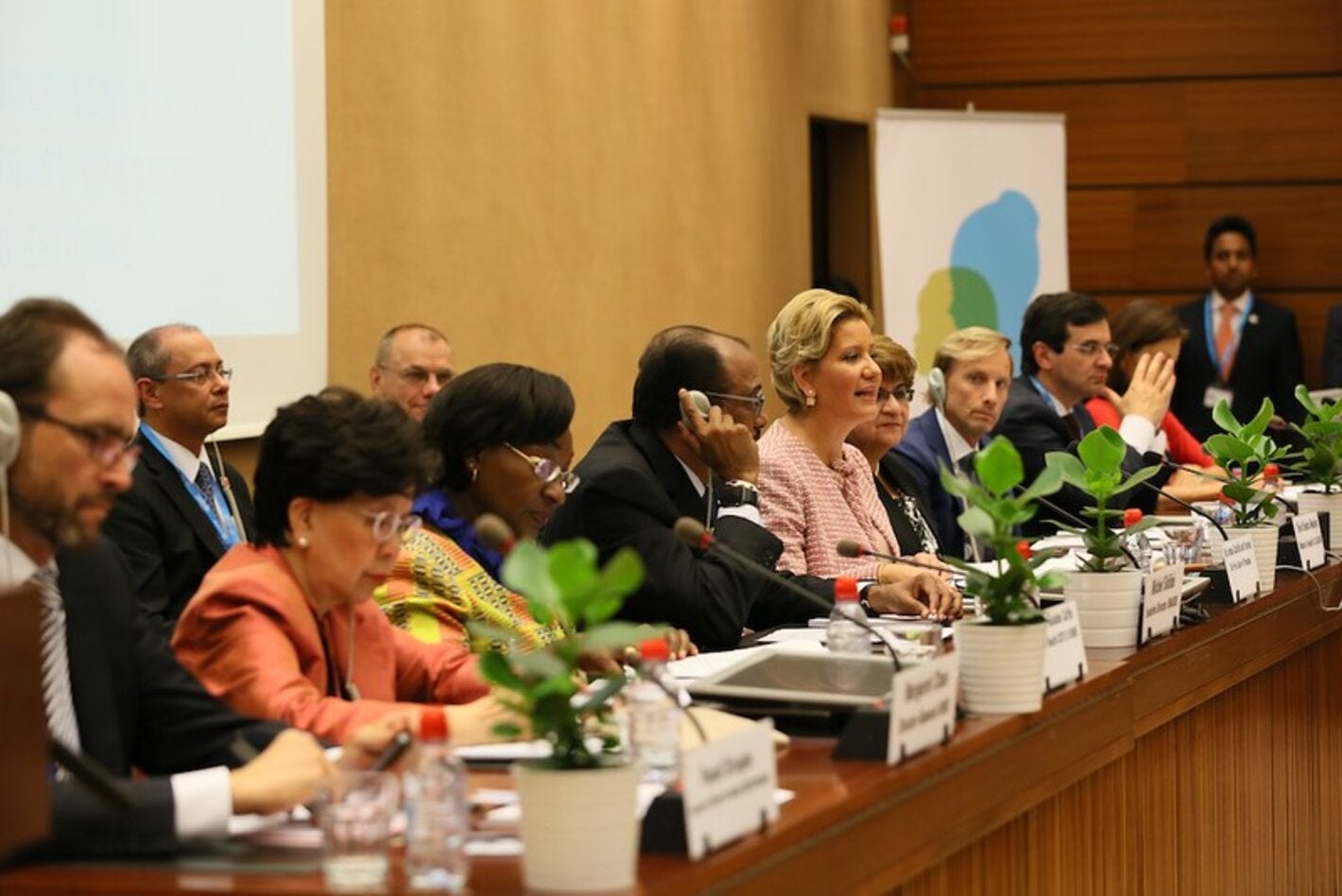
Geneva, 25 May 2016 (OPS-WHO) - Experts from United Nations agencies and representatives from Uruguay, Canada, and other countries met at a technical briefing on the implementation of the Global Strategy for Women's, Children's, and Adolescent Health (2016-2030), held within the framework of the 69th World Health Assembly. British physician David Nabarro, United Nations Special Adviser for the 2030 Agenda for Sustainable Development and Climate Change, stated that "investing in women and children's health and well-being reduces poverty and is cost-effective".
In a video address, Nabarro noted that "the 2030 Agenda is interconnected, universal, and seeks to leave no one behind, and is to be implemented through multisectoral arrangements".
WHO Director Dr. Margaret Chan focused on the need to care for the "1,8 billion adolescents" currently living worldwide, who, she noted, will be in charge of continuing work toward the SDGs from 2030 onward.
The UN Secretary General's new Global Strategy for Women's, Children's, and Adolescent Health aims to ensure that all mothers can experience pregnancy RE: Request for proposed topics - Managers' Meeting 2016 // Solicitud de propuestas de temas - Reunión de Gerentes 2016and childbirth in full health, all children can survive their first five years of life, and all women, children, and adolescents can grow and develop fully.
The Minister of Health of Uruguay, Jorge Basso, expressed his country's commitment to implementing the strategy and noted that health system reform in Uruguay, which included funding reform, has enabled reductions in maternal and child mortality, as well as in mother-to-child transmission of HIV. "Equity in health during pregnancy and early childhood is key for health during the rest of one's life", he stressed.
Marie-Claude Bibeau, the Canadian Minister of International Development, and La Francophonie, noted that "women and girls will be at the heart of the development policy [of Canada]" and highlighted the importance of more efficient and innovative policies, associations, and funding mechanisms.
During the meeting, the establishment of a high-level working group of world champions for women's, children's, and adolescent health and human rights was announced, as was the Every Woman, Every Child website, which lists the commitments made by countries—including Bolivia, Canada, Colombia, the Dominican Republic, Guyana, Haiti, and Mexico—within the framework of the Global Strategy for Women's, Children's, and Adolescent Health.
Delegates from India, Kenya, and South Africa, and the Citizen's Hearing Representative also spoke during the event.



